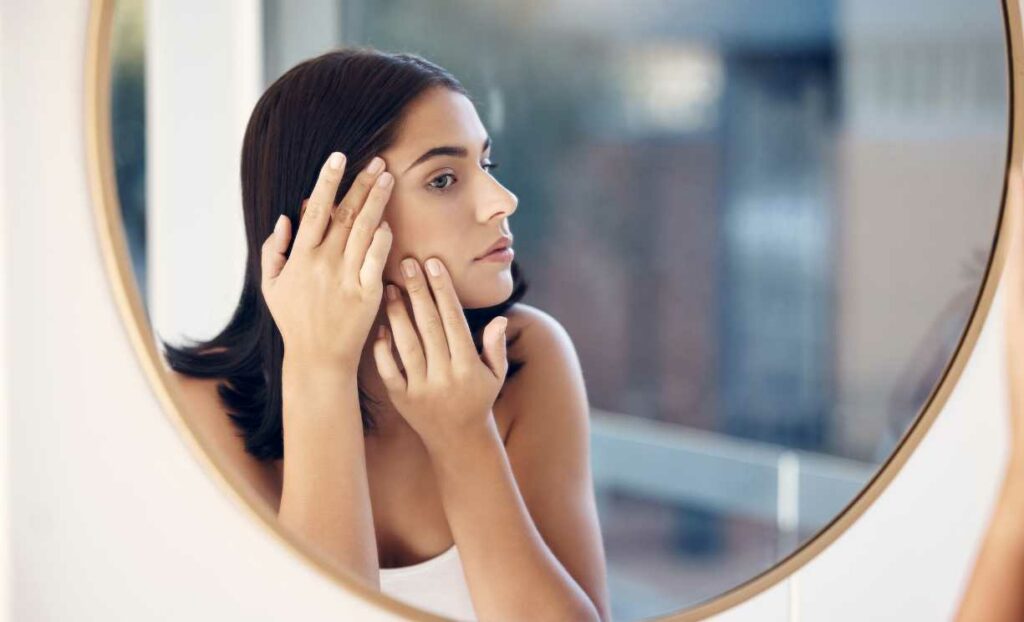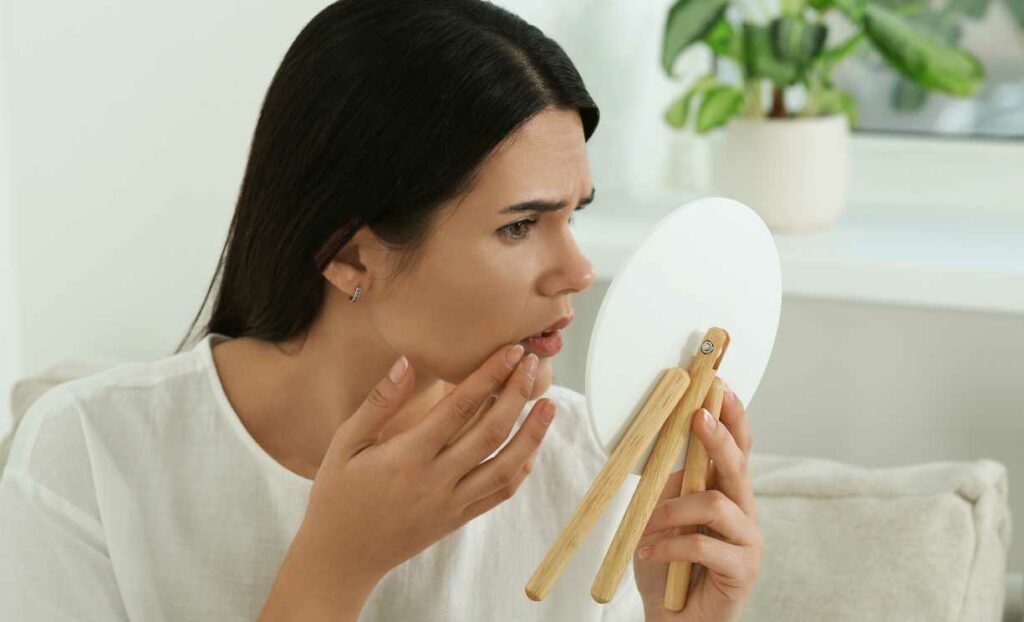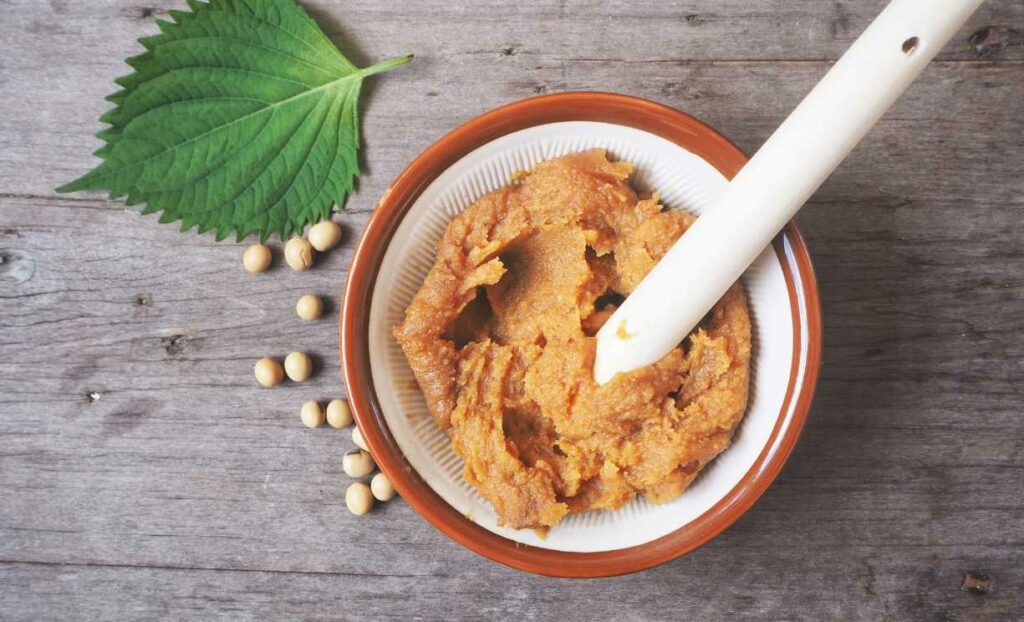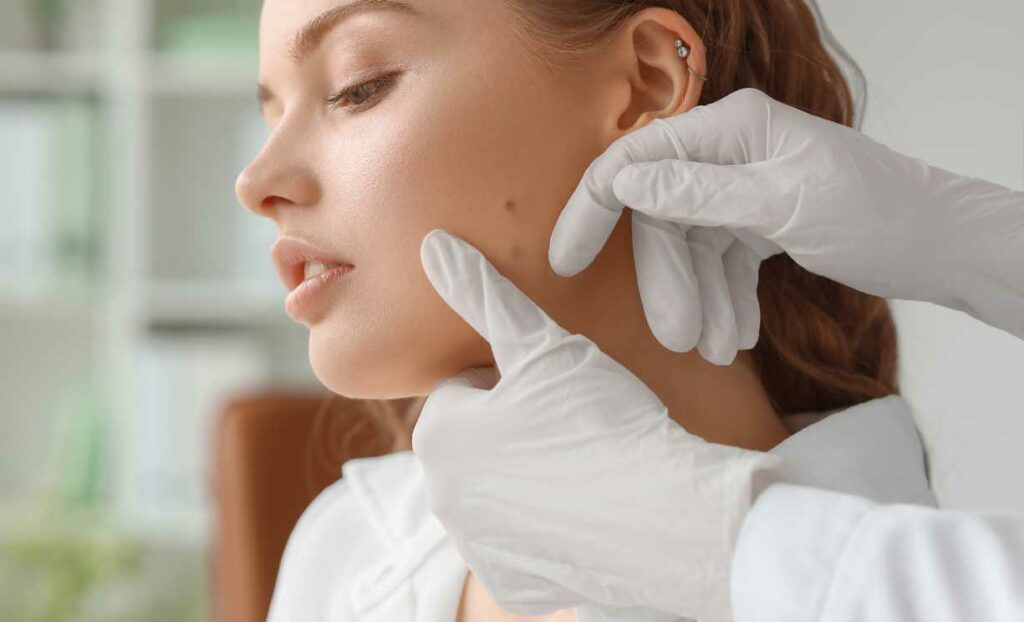Dealing with PCOS, or Polycystic Ovary Syndrome, often means navigating various symptoms, and for many, one of the frustrating challenges is pesky pimples. Hormonal imbalances associated with PCOS can lead to increased androgen levels, triggering acne breakouts. The good news is that there are simple and natural home remedies that can help manage and alleviate those stubborn PCOS-related pimples. In this blog, we’ll explore effective strategies for achieving clearer skin without resorting to harsh chemicals.
Contents
Why Does PCOS Cause Pimples?
PCOS, or Polycystic Ovary Syndrome, can cause pimples due to hormonal imbalances in the body. Individuals with PCOS often have higher levels of androgens, which are male hormones that are also present in females. These elevated androgen levels can lead to an overproduction of sebum, the skin’s natural oil. When there is excess sebum, it can clog hair follicles and pores, creating an environment where bacteria thrive.
As a result, pimples, blackheads, and acne can develop. The hormonal fluctuations associated with PCOS not only affect the ovaries but also impact the skin, contributing to the development of acne. Managing hormonal imbalances, adopting a healthy skincare routine, and incorporating lifestyle changes can help address and alleviate PCOS-related pimples.
Common Skin Problems Associated with PCOS?
Polycystic Ovary Syndrome (PCOS) can manifest in various ways, and skin problems are common among individuals with this hormonal disorder. Here are some common skin issues associated with PCOS:
- Acne: Elevated androgen levels in PCOS can lead to increased oil production, clogging pores and causing acne. This may include pimples, blackheads, and cystic acne, often concentrated around the chin, jawline, and upper neck.
- Hirsutism: Excess androgens can stimulate the growth of coarse and dark hair in areas where men typically grow hair, a condition known as hirsutism. This often affects the face, chest, back, and abdomen.
- Alopecia (Hair Thinning): PCOS-related hormonal imbalances can contribute to hair thinning or hair loss on the scalp, known as alopecia. This is more common in the crown area.
- Oily Skin: Increased sebum production due to hormonal fluctuations can result in excessively oily skin. This may contribute to the development of acne and make the skin feel greasy.
- Skin Tags: Skin tags, small, benign growths of skin, may occur more frequently in individuals with PCOS. They often appear in areas with friction, such as the neck, underarms, or groin.
- Acanthosis Nigricans: Dark, velvety patches of skin, known as acanthosis nigricans, can develop in areas where the skin folds. This condition is associated with insulin resistance, which is common in PCOS.
- Dry Skin: While oily skin is common, some individuals with PCOS may also experience dry skin. This could be a result of hormonal fluctuations affecting skin hydration.
- Hyperpigmentation: Hormonal changes may lead to an increase in melanin production, causing hyperpigmentation. This can result in dark spots or patches on the skin.
- Folliculitis: Excessive hair growth, a common symptom of PCOS, may lead to folliculitis, an inflammation of the hair follicles. This can cause red, painful bumps to develop.
Home Remedies For PCOS-Related Pimples
Home remedies can be effective in managing PCOS-related pimples by addressing skin concerns naturally. Here are some home remedies you can try:
- Tea Tree Oil: Mix a few drops of tea tree oil with a carrier oil (like coconut oil) and apply to pimples using a cotton swab. Leave it on overnight. Tea tree oil has antimicrobial properties that can help reduce acne-causing bacteria.
- Apple Cider Vinegar Toner: Dilute apple cider vinegar with water (1:3 ratio) and use it as a toner. Apply with a cotton pad to affected areas after cleansing. Apple cider vinegar has antibacterial properties that may help unclog pores.
- Honey and Cinnamon Mask: Mix honey and cinnamon to form a paste. Apply the mixture to your face, leave it on for about 15 minutes, and then rinse. Both honey and cinnamon have antibacterial properties.
- Aloe Vera Gel: Apply pure aloe vera gel to pimples and affected areas. Aloe vera has anti-inflammatory properties that can soothe irritated skin and promote healing.
- Green Tea Extract: Brew green tea and let it cool. Apply with a cotton pad to your face as a toner. Green tea contains antioxidants that may help reduce inflammation and fight acne.
- Turmeric Paste: Create a paste using turmeric powder and water or yogurt. Apply to pimples, leave it on for 15 minutes, and then rinse. Turmeric’s anti-inflammatory and antibacterial properties can aid in reducing acne.
- Coconut Oil: Apply a small amount of coconut oil to your face as a moisturizer. Coconut oil has antimicrobial properties and can help hydrate the skin.
- Baking Soda Scrub: Mix baking soda with water to form a paste. Gently exfoliate your face with the paste, then rinse. Baking soda can help exfoliate dead skin cells and unclog pores.
Treatment Options For PCOS-Related Pimples
Managing PCOS-related pimples involves a combination of lifestyle changes, skincare practices, and, in some cases, medical interventions. Here are various treatment options for PCOS-related pimples:
- Skincare Routine:
- Gentle Cleansing: Use a mild, non-comedogenic cleanser to wash your face twice daily to remove excess oil and debris.
- Topical Treatments: Over-the-counter or prescription topical treatments containing ingredients such as benzoyl peroxide, salicylic acid, or retinoids may help control acne.
- Healthy Diet:
- Adopt a balanced diet rich in fruits, vegetables, whole grains, and lean proteins. Limit processed foods, sugary snacks, and refined carbohydrates.
- Hydration: Stay well-hydrated by drinking plenty of water. Proper hydration supports overall skin health.
- Regular Exercise: Engage in regular physical activity to help manage weight and improve overall hormonal balance.
- Medical Interventions:
- Oral Contraceptives: Birth control pills can help regulate menstrual cycles and hormone levels, leading to improved skin conditions.
- Anti-Androgen Medications: Medications like spironolactone may be prescribed to reduce androgen levels and control acne.
- Retinoids: Topical or oral retinoids can help prevent the clogging of hair follicles and reduce inflammation associated with acne.
- Antibiotics: In some cases, antibiotics may be prescribed to reduce inflammation and control bacterial overgrowth on the skin.
- Professional Skincare Treatments:
- Chemical Peels: Chemical peels performed by dermatologists can help exfoliate the skin, unclog pores, and reduce acne.
- Laser Therapy: Laser treatments, such as laser therapy or intense pulsed light (IPL), may help reduce inflammation and improve skin texture.
- Consultation with Healthcare Professionals: Consult with a dermatologist or healthcare provider to discuss your specific skin concerns and develop a personalized treatment plan. Also, consider seeking guidance from an endocrinologist to address underlying hormonal imbalances associated with PCOS.
When To See A Doctor?
If you’re dealing with persistent or severe symptoms related to PCOS, it’s essential to see a doctor. Schedule a visit if you’re experiencing irregular periods, acne that doesn’t improve with over-the-counter treatments, excessive hair growth, or difficulty getting pregnant. Additionally, seek medical attention if you notice signs of insulin resistance, such as unexplained weight gain, increased thirst, or changes in skin pigmentation. A healthcare professional, often a gynecologist or endocrinologist, can provide a thorough evaluation, diagnose PCOS, and create a tailored treatment plan to manage your symptoms. Early detection and intervention can help improve your overall health and quality of life.
Conclusion
In conclusion, managing PCOS-related pimples through home remedies offers a natural and accessible approach to achieving clearer skin. While these remedies may prove effective for some, it’s crucial to remember that individual responses can vary. Consistency in skincare practices, a balanced diet, and a healthy lifestyle contribute to overall skin health.
However, it’s advisable to consult with healthcare professionals for personalized guidance, especially if symptoms persist or if you have pre-existing skin conditions. By combining home remedies with expert advice, you can embark on a holistic journey toward managing PCOS-related pimples and promoting healthier, radiant skin.





